Adja was surrounded by wood and ashes at the smokehouse near the beach in Sanyang, Gambia, when she spoke to Amnesty International. This popular tourism spot is also the centre of one of Gambia’s other main sources of income – fish.
I smell the factory since I arrived here. I smell them every time they start working. The smell bothers me.
Adja
Adja, a widow in her forties, said she had begun smoking fish four months earlier following her husband’s death in order to support herself and her five children, aged between 10 and seven months. But the work is hard and the income precarious. Adja smokes mainly bonga and sardinella fish, but massive fishing by the factory canoes and foreign trawlers means fish are becoming scarcer and more expensive – and that means her profit is both unstable and shrinking.
There are weeks when she manages to earn 300 dalasi (around 5 euros) but some weeks, after paying for the wood and fish and the rent on the smoking place, she is left with barely anything to take home. As she told us this, two things were constant – the smile on her face and her total determination to carry on and not lose hope of a better future for herself and for her children.
I still have hope […] I will see whether I can keep doing this. From the past four months, I have not seen any positive change; the situation is getting worse, there are not enough fish.”
Adja
However, Adja and thousands more like her face daunting odds in trying to protect her family, community and environment.
Women make up about 80% of fish processors and 50% of small-scale fish traders – all of whom are undoubtedly affected by the shortage of fish and environmental degradation. The cause of that deterioration in standards of living and the environment is a stark demonstration of how lives are being negatively impacted by human activities, often far away, that are failing to take into account their effect on the resources we all ultimately depend on.
Excessive fishing is a human-led activity that destroys and empties our seas. The life of the communities that used to live in symbiosis with the sea and marine life are being destroyed at an unquantifiable scale and alarming speed.
Gambia lies on the West Coast of Africa and has a coastline of approximately 80 km. Fishing is a core activity for many Gambians and a key source of food for its population, especially pelagic fishes (fish living near the ocean’s surface) such as sardinella or bonga.
Excessive fishing by big foreign trawlers and fishmeal and fish oil factories has emptied the Gambian coast of fish at a frenetic pace. Gambia exports almost 20,000 tonnes of fish annually through the activities of fishmeal factories, foreign industrial vessels and fish processors. Adding to that, the country, together with Guinea, Guinea Bissau, Mauritania, Senegal and Sierra Leone, lose about US$2.3 billion annually to illegal fishing. The picture is grim.
This overfishing is not sustainable – both in terms of the overall health of the oceans and the human population.
Right now, the most severe immediate impact is being felt by the people of Sanyang. They know that, in the long term, this overexploitation of their sea, by the big foreign trawlers and the fishmeal factories, is harming their lives and their environment. They told Amnesty International of their concern about the larger impact all this will have on their community; the increased prices of an important staple of their diet, the rise of unemployment among people that live from traditional fishing and the growing food insecurity in a population for whom fish is an essential source of protein.
According to the UN Food and Agriculture Organization, between 2015 and 2020, the number of people affected by food insecurity increased from 5 to 8% in Gambia.
The Gambian government has an obligation to protect its people and to defend their fundamental human rights including the rights to food, decent work, health and a safe environment. However, the experiences of Adja and others who spoke to Amnesty International show that far from defending these rights, it is allowing them to be eroded in the name of limited economic interests.
The Gambian government must protect these rights and pass legislation requiring companies to conduct human rights due diligence in their operations and supply chains and ensure proper monitoring of Gambia waters against illegal fishing. The government must also show transparency and allow easy public access to information about fishmeal factories and foreign trawlers.
Join Amnesty International members and supporters in their campaign to protect Gambia’s coastal waters, marine resources and communities. Act now by emailing the President of Gambia, Adama Barrow, to demand that he ensures the implementation of Amnesty International’s recommendations.
* A pseudonym has been used to protect the interviewee’s security and privacy.
VOICES of sanyang: #SaveGambianSeas #ProtectGambianCommunities
The members of the communities affected by the overexploitation of the seas through the activities of Nessim Fishmeal Factory and foreign industrial trawlers are sharing their stories with us. These firsthand stories are meant to let you know more about why we’re standing with Sanyang to save Gambian seas and protect Gambian communities rights.
Read MORE and act now.
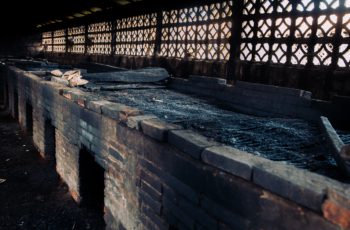 published on worLd ocean day – 8 JUNE
published on worLd ocean day – 8 JUNEAdja, the fish smoker
Read more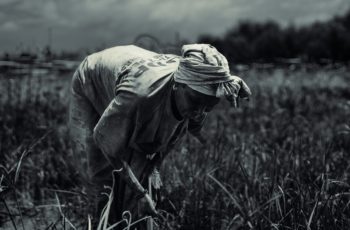 COMING SOON
COMING SOONHabibatou, the gardener
read more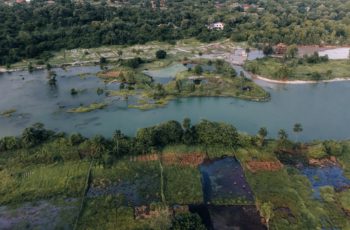 coming soon
coming soonBarry, the lodge owner
read more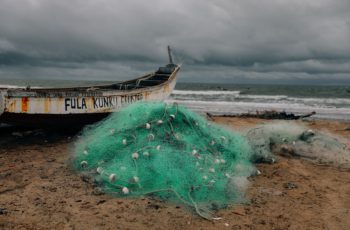 coming soon
coming soonIbrahima, artisanal fisherman
read more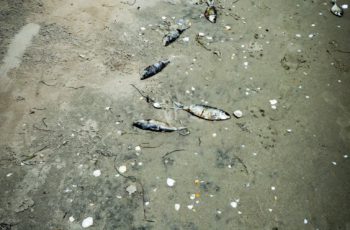 coming soon
coming soonMohamed, activist
read more
